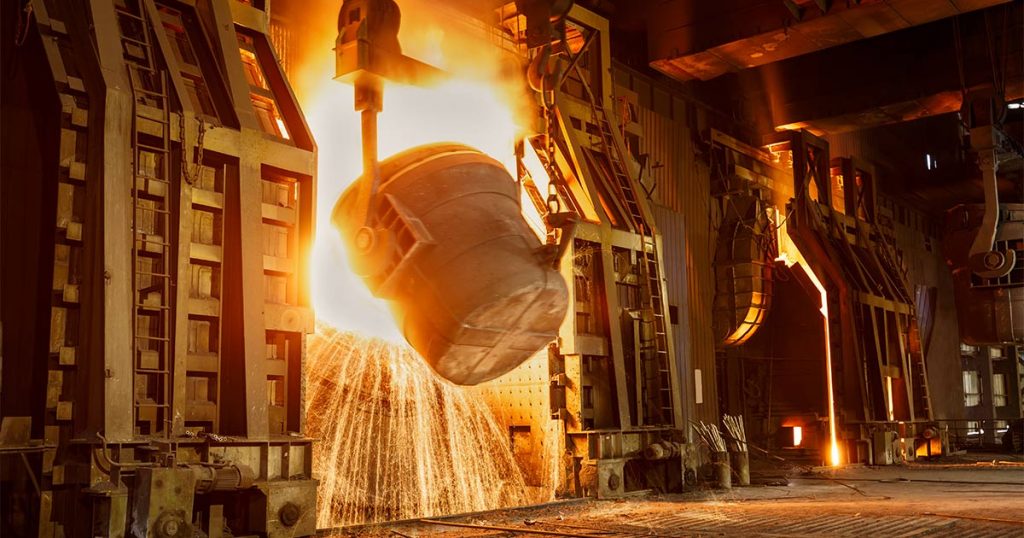Local foundries eager to ‘replace’ Zisco
PLAYERS in the local metal casting industry have pledged to revive the iron and steel sector in the absence of the defunct Zimbabwe Iron and Steel Company (Zisco), and have appealed to the Government to grant them iron ore mining rights.
Following the demise of Zisco in 2008, Zimbabwe has become a net importer of iron and steel products, which continue to bleed the economy of close to US$1 billion a year.
The situation has not only dampened downstream value chain gains for the economy but has resulted in loss of competitiveness in terms of local pricing of iron and steel products, as well as exports.
With the Government saying it is seized with securing a suitable investor to revive the Redcliff-based giant factory, local foundries say they have capacity to successful revive the sector.
In order to do this, they want the Government to grant them iron ore mining rights, ban exportation of scrap metal, which is their biggest raw material at the moment, as well as being allocated adequate working space, among other support measures.
This emerged during the inaugural Zimbabwe Metal Casting indaba, that was hosted in Bulawayo last Friday.
Zimbabwe Institute of Foundries president, Mr Itai Zaba, said in the absence of Zisco, the more than 50 local foundries were eager to establish their own steel production units.
“As metal casters, we need to start moving forward even without Zisco, so far we will commission a furnace for steel production before March 2022 and we will start slowly but we will get there,” he said.
“The sector is also in the process of setting up furnaces in different places for steel and iron processing.”
His views were backed by industry delegates from the floor who suggested that given a chance local foundry could replace the gap left by Zisco.
“As Zisco continues to lie idle, is there a clear policy that allows small-scale foundries like us to extract iron ore and process it into steel?” asked a foundry operator from Kwekwe.
“Why can’t the Government give us licences to mine iron ore and feed into our plants.
Right now, we rely on scrap metal but it is limited and policy still allows for its exportation.”
Other participants concurred and suggested that Government deliberately reviews policy to support local foundries’ drive to revive the iron and steel sector.
Some indicated the need to provide adequate working space, competitive utility costing and financing towards adopt of modern technology.
A representative from the Bulawayo Polytechnic said the institution was ready to work closely with local foundries and invited industry players to come and access some of the technology and skills on offer.
Mr Shelton Sithole from the Bulawayo City Council urged increased collaboration towards reviving the iron and steel sector.
Meprin Founders and Engineers director, Mr Pride Gobvu, said adequate energy supply must back up successful revival of the steel and iron sector, which should rope in energy producers mainly in the Hwange area.
The meeting also stressed the need to invest in retooling saying at the moment most foundry operators were using archaic technology.
ZIF chief operating officer, Mr Dosman Mangisi, said the foundry sector was contributing US$1,5 billion to the economy and could widen its earnings given adequate support.
He said the metal casting industry was operating at 40 percent with 35 000 tons of scrap needed per month, which needs to be doubled when operating at almost 80 percent or at full capacity.
Mr Mangisi said Zisco was the source of raw material to the foundries and now the industry is depending on scrap metal, which is scarce as exporters are given preference at the expense of locals.
In his response, guest of honor, Deputy Minister of Mines and Mining Development, Dr Polite Kambamura, said the foundry sector should find its way out rather than waiting for the revival of Ziscosteel.
“The sector should create synergies and try to create their own small Ziscosteel rather than continue holding to the past,” he said.
The deputy minister said there was no policy at the moment that disallows foundries from extracting iron ore and encouraged the players to make application to the Government.
He also said the ministry was supportive of the need to beneficiate all scrap metal produced in Zimbabwe locally.
“We can’t continue exporting scrap metal when there is a ready market for it locally. You can also apply for tittle to mine iron ore and beneficiation, we don’t have a policy to stop that, in fact we encourage it,” said Dr Kambamura.
The meeting was attended by local and regional stakeholders in the foundry industry and discussed a range of topics related to growing production and increasing exports in line with the country’s drive towards an upper middle-income economy by 2030. – The Chronicle











